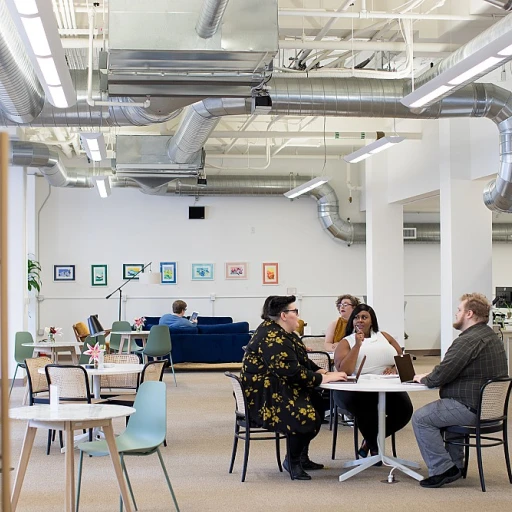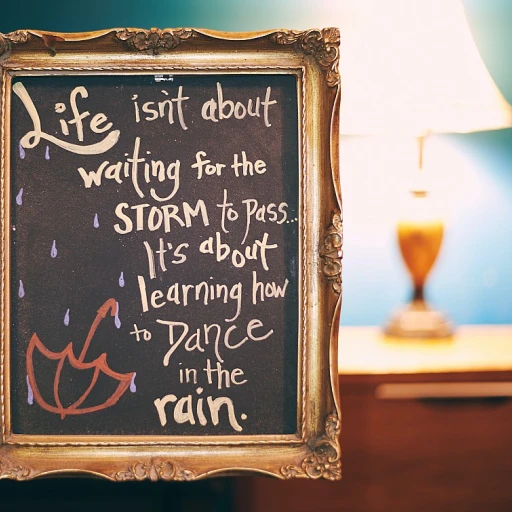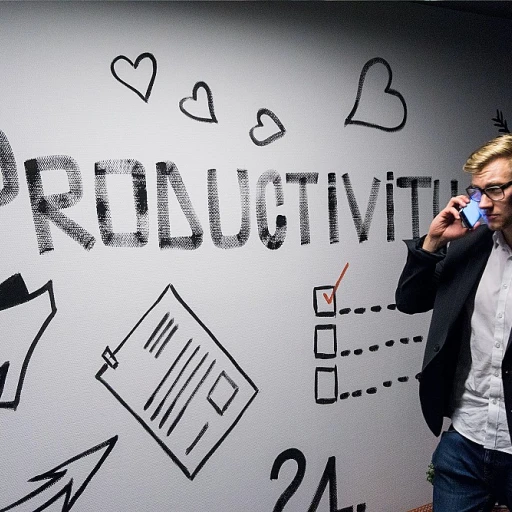
Understanding the Skills Gap
Grasping the Skill Discrepancy
Understanding the skills gap is fundamental before diving into the interview process. This gap is essentially the chasm between the skills an employer requires and the capabilities candidates bring to the table. Recognizing this gap allows organizations to pinpoint what they need in a prospective hire and helps craft key interview questions that lead to a more effective evaluation. In today's fast-evolving job market, the skills gap can emerge from rapid advancements in technology and evolving industry demands. Many companies are struggling to find candidates possessing both technical abilities and soft skills necessary for success in their roles. It is vital for hiring managers and recruiters to have a clear understanding of the necessary skills for their company, helping them to craft questions that assess these competencies during interviews. To bridge this gap, hiring teams can benefit from employing tools that measure cognitive aptitudes. Resources like the role of PI cognitive assessment offer insights into a candidate's potential to gain new skills and adapt to the future needs of the organization. Emphasizing these assessments allows employers to better evaluate a candidate's ability to grow alongside their team, ensuring they can meet both current and future demands. Proactive identification of core competencies can help hiring teams refine job descriptions and develop questions that will uncover the capabilities most essential for success. As an interviewer, it is important to ask questions that not only gauge the applicant's present skill set but also their potential to learn and evolve. This approach helps in matching an individual's strengths to the workplace needs, enhancing the overall fit with the company culture.Identifying Core Competencies
Pinpointing the Essential Skills
In the competitive landscape of hiring, identifying core competencies in candidates is crucial for bridging the skills gap. When assessing potential hires for your company, it is vital to uncover their true qualifications and align them with the requirements of the role. This not only helps in selecting the right candidate but also ensures long-term success for both the individual and the organization. First, evaluate the key skills necessary for the job. Consider both technical and soft skills that the position demands. Technical skills might be specific to the industry, while soft skills such as adaptability, teamwork, and communication play a pivotal role in ensuring a candidate fits well with the team culture. Crafting effective interview questions tailored to the required competencies can make a significant difference. For instance, asking candidates to describe a situation in which they had to adapt quickly can provide insight into their adaptability. Quality questions help reveal whether the candidate's experiences and skills are truly aligned with the job's demands. The interview process should involve questions that encourage candidates to share examples from their past work experiences. This approach not only provides genuine answers but also highlights how they've handled similar situations before. For instance, questions about decision-making can help understand how a candidate approaches problem-solving. Moreover, consider extending the assessment by incorporating methods such as behavioral interview techniques. These interviews can uncover how candidates have demonstrated competencies in former roles. Assessing cultural fit is equally crucial; questions related to company culture and values can help ensure the candidate will be a cohesive part of the team. Lastly, integrating a cognitive assessment may help gauge a candidate’s potential for success in a given role. Understanding the role of PI cognitive assessment in bridging the skills gap can further refine the selection process, ensuring you find the right fit for the organization's long-term objectives. Learn more about the role of PI cognitive assessment to further enhance your hiring strategy.Crafting Effective Interview Questions
Designing Insightful Questions for Interviews
The heart of a successful interview process lies in the ability to ask well-crafted questions that truly assess a candidate's capabilities and fit within the organization. To bridge the skills gap effectively, companies must design interview questions that not only evaluate specific job skills but also probe into a candidate's potential to adapt and grow. Crafting these questions involves consideration of both technical skills and soft skills. While technical skills are crucial for performing specific tasks, soft skills such as communication, teamwork, and adaptability are what enable candidates to thrive and contribute to a company in a meaningful way. When developing interview questions, focus on the core competencies identified as necessary for the role. Here are some strategies to ensure your questions help understand the candidate's suitability:- Scenario-Based Questions: Ask candidates to describe a time when they tackled a challenging situation. Such questions help you assess their problem-solving and decision-making abilities.
- Behavioral Interview Techniques: Using these methods can help you predict future performance by understanding past behavior. Questions like "Describe a situation where you had to adapt quickly to rapid change" can reveal how flexible and resilient a candidate is under pressure.
- Cultural Fit Assessment: Evaluate if the candidate aligns with the company culture by asking about their preferred work environment. Questions could be, "How do you handle feedback from team members?" or "What type of organizational culture do you thrive in?"
- Team and Collaboration: Investigate how well candidates work within teams by asking them to share experiences like, "Describe a time when you had to collaborate with others to meet a deadline."
Behavioral Questions to Assess Adaptability
Insights Into Behavioral Interviews
The dynamics of the workplace have evolved, making the assessment of a candidate's adaptability a key facet in bridging the skills gap. Employing behavioral interview techniques can provide deep insights into how candidates might fit within the organization and its culture. These interviews focus on past behavior as a predictor of future performance, thus helping understand how an individual will tackle challenges in a new role. Behavioral questions aim to elucidate how candidates have previously responded to work scenarios, assessing their ability to adapt, work within a team, and navigate complex situations. When hiring for a role that demands agility and problem-solving, asking questions that require candidates to describe a time when they had to adjust to a significant change can be revealing. For instance, invite candidates to describe a situation where they had to learn a new skill swiftly for a critical project. This question helps assess their learning agility and how they perceive challenges. Their answers will provide insights into their process of decision making, collaboration with team members, and management of time pressure. To gain clarity around cultural fit within your company, explore scenarios where candidates had to adapt their working style to align with organizational norms or team dynamics. Asking about times when they had to handle unexpected changes or setbacks can also highlight their resilience and creative problem-solving abilities. Moreover, conducting behavioral interviews allows the company to evaluate soft skills that are not always apparent in traditional question formats. Soft skills, including communication, teamwork, and adaptability, are critical in ensuring that the candidate not only fulfills job roles effectively but also integrates seamlessly into the company culture. Ultimately, crafting the right behavioral interview questions can illuminate aspects of a candidate's experience and mindset, offering a window into their potential for growth and contribution to bridging the skills gap within the organization.Evaluating Problem-Solving Abilities
Assessing Complex Decision Making
When it comes to problem-solving abilities, evaluating how candidates approach complex decision-making is crucial. During the interview process, it's essential to devise questions that delve into their capacity to navigate challenging scenarios effectively. Asking candidates to describe a situation where they tackled a difficult problem offers insight into their critical thinking skills and how they implement strategies to overcome obstacles.
Good questions might include:
- "Can you describe a time when you identified a problem others overlooked?"
- "Explain a scenario where you had multiple options to solve a problem. What approach did you take, and why?"
- "Share an example of how you worked with team members to solve a complex issue. What role did you play, and what was the outcome?"
These questions help interviewers assess the candidate’s ability to work through a problem in a methodical way, their creativity in generating solutions, and their openness to input from others. Encouraging candidates to share their process in a structured manner will reveal their thought process and how well they fit within the company culture regarding collaborative problem-solving.
Incorporating Soft Skills
Don't underestimate the importance of soft skills in problem-solving. Understanding how a candidate’s interpersonal skills contribute to the problem-solving process is valuable. Ask questions that explore how candidates manage time efficiently during problem resolution, communicate with their team, and motivate others during challenging efforts.
- "Describe a time when you resolved a conflict between team members to reach a solution more efficiently."
- "How do you prioritize tasks when you’re facing a pressing deadline?"
These types of questions help uncover how candidates navigate complex social dynamics in the workplace and apply their emotional intelligence to drive successful outcomes.
Post-Interview Assessment and Feedback
Reflecting on the Interview Process
Once the interview process concludes, it is crucial to take a step back and reflect on the entire experience. This reflection helps the organization understand how well the interview questions were able to assess the candidate's skills and cultural fit. Consider the following steps to ensure a comprehensive post-interview assessment:
- Review Candidate Responses: Analyze the answers provided by the candidates. Did they effectively describe situations where they demonstrated the core competencies required for the role? This will help understand if the questions were effective in eliciting the necessary information.
- Evaluate Behavioral Insights: Reflect on the behavioral interview questions. Did the candidates share examples that showcased their adaptability and problem-solving abilities? This evaluation can highlight whether the questions helped in assessing soft skills and decision-making capabilities.
- Assess Cultural Fit: Consider how well the candidates align with the company culture. Did their responses indicate a good fit with the team and organization? This is crucial for ensuring long-term success and integration within the company.
- Gather Feedback from Team Members: Involve team members who participated in the interview process. Their insights can provide a different perspective on the candidate's potential to work effectively within the team.
Providing Constructive Feedback
After the assessment, providing feedback to candidates is an essential part of the process. Constructive feedback not only helps candidates improve but also enhances the company's reputation as an employer. Here are some tips for delivering effective feedback:
- Be Specific: Share specific examples from the interview to illustrate your points. This helps candidates understand exactly where they excelled or need improvement.
- Focus on Skills and Competencies: Center your feedback around the skills and competencies discussed during the interview. This keeps the feedback relevant and actionable.
- Encourage Growth: Offer suggestions for development that can help candidates bridge any skills gaps identified during the interview.
- Maintain a Positive Tone: Even when providing critical feedback, ensure the tone remains positive and encouraging.
By thoroughly evaluating the interview process and providing constructive feedback, companies can refine their approach to bridging the skills gap and ensure they are selecting candidates who will thrive in their roles.













